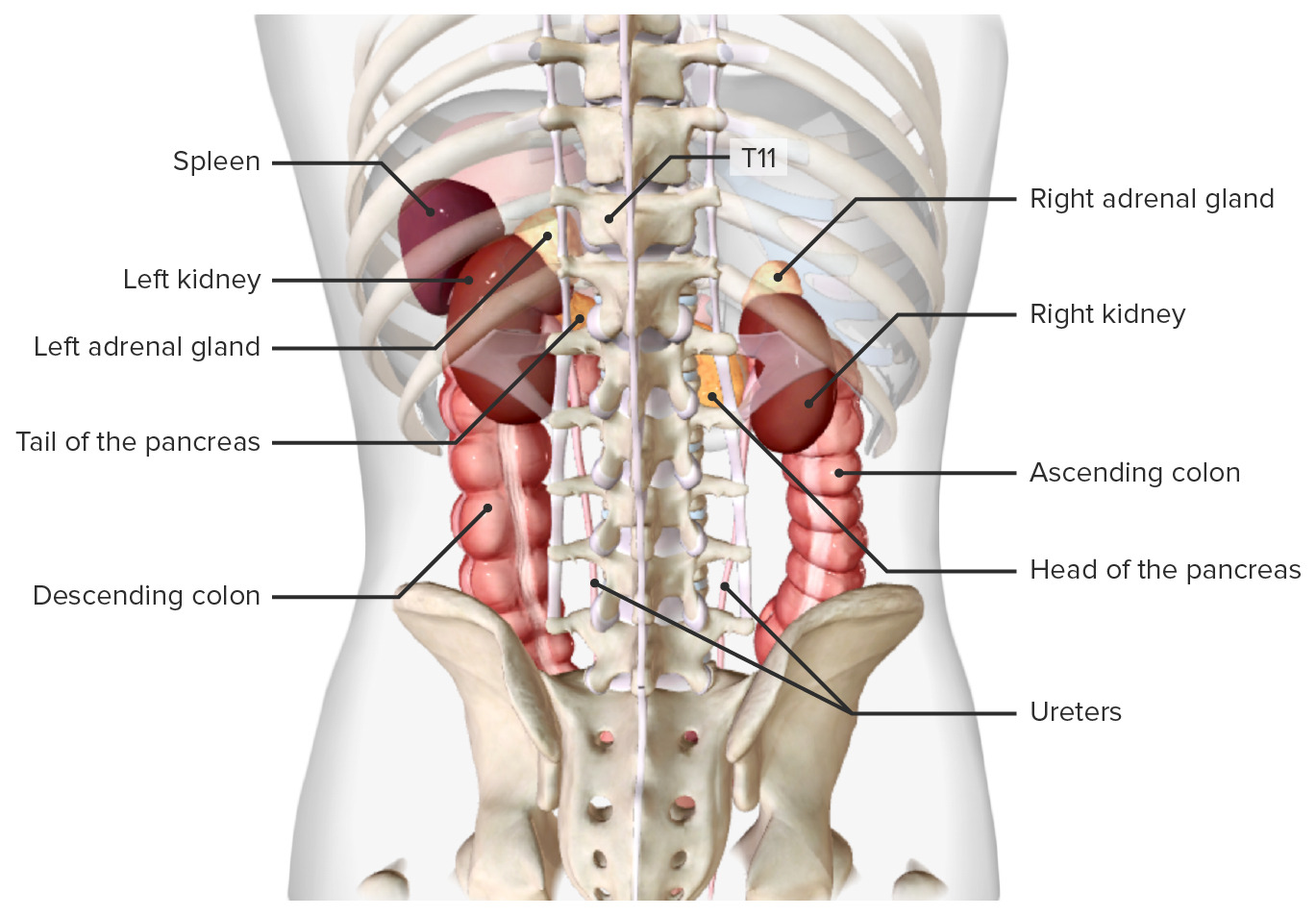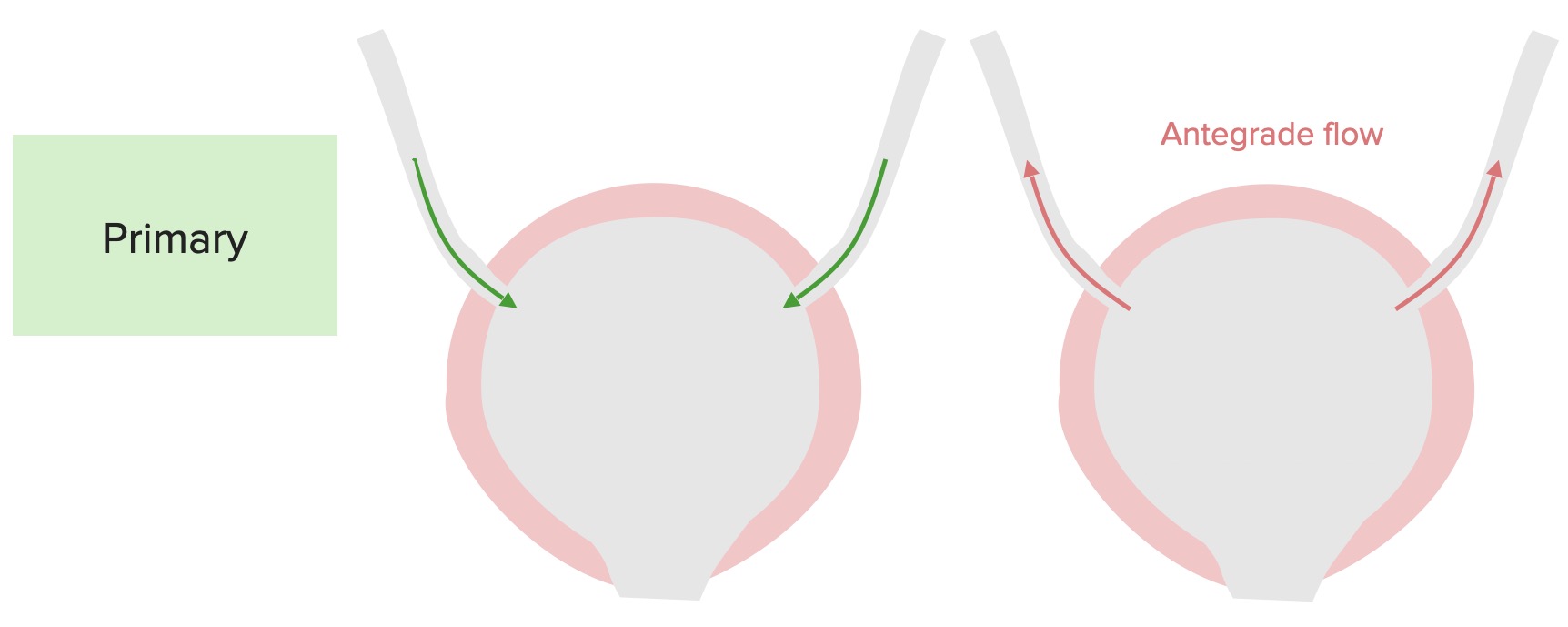Playlist
Show Playlist
Hide Playlist
Vesicoureteral Reflux (VUR): Management
-
Slides VUR Pediatrics.pdf
-
Download Lecture Overview
00:01 So in general, how do we manage reflux? This is controversial. 00:10 We do want to actively treat all urinary tract infections. 00:14 Clearly, urinary tract infections are uncomfortable. 00:17 They can cause fever. 00:19 Children don’t like them, so we should treat them with antibiotics. 00:24 One idea that’s come up is prophylactic antibiotic use. 00:29 This is where we take children who have vesicoureteral reflux and put them on daily antibiotics, one dose once a day. 00:37 The idea being that let’s reduce the likelihood of getting urinary tract infection in the first place. 00:44 Most commonly, folks use trimethoprim/sulfamethoxazole, although other antibiotics have also been used. 00:52 This does prevent UTIs, but it does it badly. 00:57 So it generally takes of over 6,000 doses of daily Bactrim before, on average, you prevent a single UTI. 01:07 The problem is it would only take 20 doses of Bactrim to, in fact, cure UTI that that child would have had. 01:16 So doing urinary tract infection prophylaxis results in massive exposures to massive amounts of antibiotics and we actually are coming to learn that antibiotics are pretty bad for you. 01:31 Also even though this may reduce UTIs rarely, let’s do the math again, you need to be on prophylaxis for 18 years before you prevent urinary tract infection. 01:43 It does not prevent scarring. 01:47 In other words, these patients don’t have a change in the actual damage that we’re actually concerned about in terms of long term issues. 01:56 And children who are on daily prophylaxis tend to get resistant urinary tract infections and those can be challenging to treat. 02:05 Patients for example on daily Bactrim are more likely to have urinary tract infection with an extended spectrum beta lactamase inhibiting producing bacteria. 02:15 As a result, that child may only respond to a drug such as say meropenem which is only available through IV. 02:24 And so we have to hospitalize children for what would otherwise be a simple cystitis. 02:30 So this is where the controversy in UTI prophylaxis lies. 02:35 We aren’t really clear that it’s actually preventing the thing we are worried about, the scarring. 02:40 In fact, the evidence shows it does not. 02:43 And it may cause an increase in resistant forms. 02:46 However, this therapy currently is still being used fairly frequently. 02:52 Another way we can prevent urinary tract infections in children is by doing surgery. 02:58 This is an example of a cystoscopic surgery that a surgeon is doing where they’re attempting to re-implant the ureter at a better angle so that when this child bares down to pee, it doesn’t reflux back into the kidney. 03:12 Another alternative technique is to inject a polymer just underneath where that valve empties. 03:19 As you can see in this picture, by injecting polymer, that may allow for that kink in the ureter which will allow it to close off during muscle contraction. 03:30 Unfortunately, this is also a problem. 03:32 While this is commonly done for children with severe, say grade V reflux, we unfortunately have to remember that it’s not as effective as we want it to be. 03:42 In one Cochrane review, it took nine surgeries to prevent a single UTI. 03:48 And once again, while the surgery maybe minimally effective at preventing future urinary tract infection, it does not seem to prevent any renal scarring which is the thing we’re actually worried about for the long term. 04:03 So this is a complicated picture, vesicoureteral reflux. 04:07 It’s a changing dynamic picture and it's one we are different doctors feel different ways. 04:12 I’m trying to portray a general picture here for you, so you’ll be ready for your exam and know how to treat these children when you encounter them. 04:20 Thanks for your attention.
About the Lecture
The lecture Vesicoureteral Reflux (VUR): Management by Brian Alverson, MD is from the course Pediatric Nephrology and Urology.
Included Quiz Questions
Which of the following statements best explains the current approach to the treatment of vesicoureteral reflux?
- Treatment remains controversial.
- Antibiotic prophylaxis significantly reduces the chances of renal scarring.
- Surgical re-implantation of the ureter is indicated in all patients.
- Nephrectomy is indicated in patients with grade 5 reflux.
- No treatment is currently available.
Customer reviews
5,0 of 5 stars
| 5 Stars |
|
1 |
| 4 Stars |
|
0 |
| 3 Stars |
|
0 |
| 2 Stars |
|
0 |
| 1 Star |
|
0 |
Excellent lecture. This topic is very important in pediatrics. Thank you!





